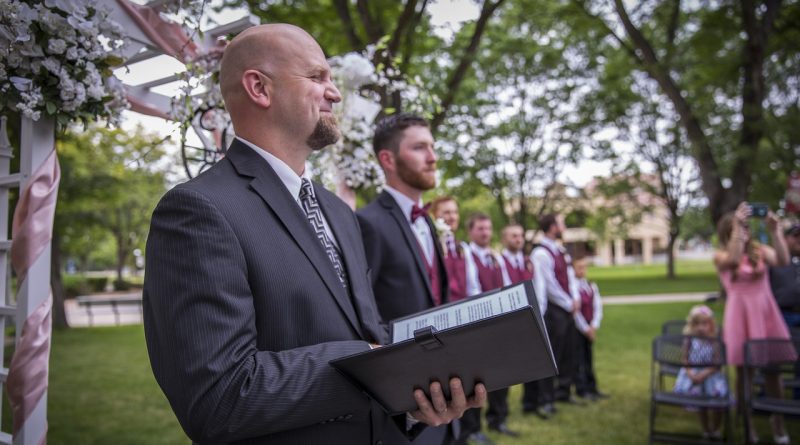Preachers
A writer will sometimes get “writer’s block.” This condition is especially true with fiction writers. Developing a character or moving a scene along in a way that keeps the reader’s interest sometimes takes hours of thought and trial and error.
In non-fiction writing, the author collects data, facts, and quotes and formulates them into a readable form. While there is no character development or scenes to move along, there is the presentation of ideas and facts to achieve the author’s goals.
Public speaking is a different animal as facial expressions and voice inflection come into play.
Moving through the spectrum of communication from writing to public speaking, we come to preaching.
How is preaching different from other public speaking? Public speaking can take many forms: a CEO informing his employees of last quarter’s profits or future cutbacks, a coach providing the motivation needed to lift the underdogs to victory, and a salesman attempting to convince the crowd to buy his latest gadget are only three examples. On the other hand, a preacher gathers what he needs to say from God, hopes to say only what God wants, and does so with the intention that God will change lives.
Before I go on, it may be best to give some of my history to explain where I am coming from.
I did not take the usual route to becoming a Pastor.
Usually, when someone expresses interest in entering the ministry, they go to Bible college for four years, then possibly seminary afterward. I did not finish Bible College; in fact, I hardly went. I went part-time for one year, taking Bible courses. I then took history courses part-time at a community college for a year.
At that time in my life, I joined the US Army because of a lack of faith caused by my pride (I looked to myself to supply our needs instead of looking to God). After training, my first duty station was Ft. Polk, Louisiana. While there, God pounded my pride out of me. With a renewed living faith and a ton more humility, God had the army send me to Germany. While there, God supplied a missionary to the American military. I explained to him that God had called me to preach, and my pride and lack of faith got me into the military. The man took me under his wings and, for the next three years, taught me what makes a Pastor.
Bible college would have taught me many of the same things the missionary did, but I learned them under his mentorship. There is a world of difference between being taught something and learning something.
I now move back to preachers.
A Pastor, an evangelist, or a missionary needs to be called by God. Preaching is not, nor will ever be, a job; it is a calling.
Moving from one church to another should never be a career move for a minister; it is a calling.
Usually, after college, the prospective preacher is looked upon as young and inexperienced and will end up as a youth minister. After all, he is in his twenties; he’d be great with teenagers.
One question to churches and preachers who think this way – where is God in that plan? Remember what Paul told Timothy in 1 Timothy 4:12, “Let no man despise thy youth…”
Charles Spurgeon became a pastor as a teenager, and Christians have nicknamed him “The Prince of Preachers.” Some will argue that Spurgeon was an anomaly. Was Spurgeon an anomaly because he was something special, or was it because churches have a list of criteria instead that puts limitations on God? Churches need to be prayerfully pleading, “God please send us who you want to lead us.”
A minister must want the job. The desire to hold the office of Pastor is the first qualification God gives (1 Timothy 3:1). Taking that a step further, when God calls someone, God will place in their heart the need to preach. 1 Corinthians 9:16, “For though I preach the gospel, I have nothing to glory of: for necessity is laid upon me; yea, woe is unto me, if I preach not the gospel!”
Regarding sermon preparation, what God wants preached is the only thing that matters. Ministers should be praying constantly. While we shop, spend time with the family, and drive down the road, at least in the back of our minds should be thoughts to God, “What do you want the people to hear?” A minister must pray harder if he suffers “writer’s block” while preparing a sermon. It is not good enough to grab a book of outlines and have the message ready. If God does not lead you in preparing the sermon, can we really expect Him to talk to anyone in the congregation during the sermon? God may use an outline or a sermon from the past as inspiration to lead us in the right direction or ignite that light of guidance, but when we rely on these things instead of God, we are outside of God’s will. And God’s will should always be the goal.
The Holy Spirit must guide a sermon to do any heavenly good. If the Holy Spirit is in control, the sermon will be Bible-based and contain nothing but truth.
The guidance of the Holy Spirit is critical. What I am about to say may petrify some. Still, sometimes, a minister may prepare and have notes ready to preach from, but something happens. The Holy Spirit starts guiding in a different direction. It would then be proper to leave the notes in the pew, get into the pulpit and preach. Do not worry that the sermon outline is already in the bulletin or the topic is on the sign out front. What God wants said is the most essential thing – preach it!
For those of you in the congregation, do not hesitate to ask your Pastor about how God called him into the ministry. Ask him about his “job” and see if he corrects you.

Preacher Tim Johnson is Pastor of Countryside Baptist Church in Parke County, Indiana. His weekly column “Preacher’s Point” may be found at: www.preacherspoint.wordpress.com

